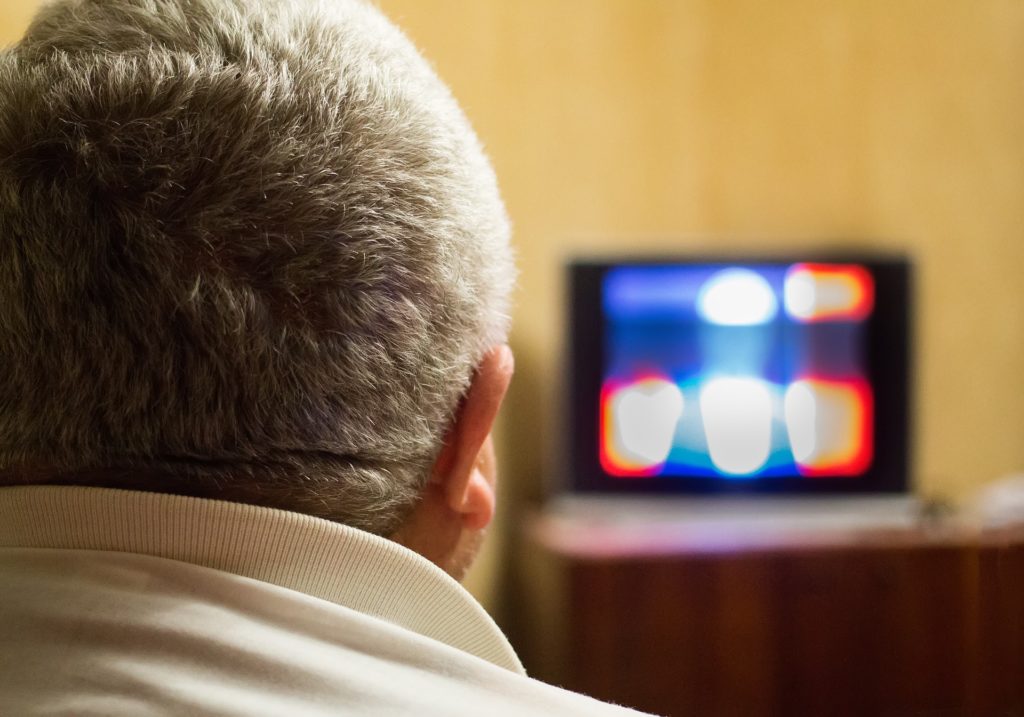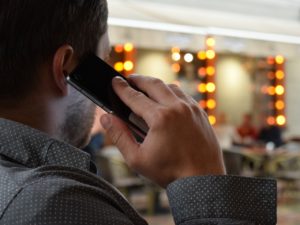
Contributor: Staff at Keystone Treatment Center
For every buzzer-beater, walk-off home run, game-winning touchdown pass, or playoff overtime goal that has caused joy and elation for so many, there’s another side: the agony of a bitter defeat. We’re not just talking about the team that’s celebrating a victory or the one that’s hanging their heads for a painful walk to the locker room.
If you’ve watched any NCAA basketball tournament, you’ve surely seen the frenzied reaction of a nail-biting finish from inside a Las Vegas casino. A shot that misses by mere inches a thousand miles away can cause millions of dollars to change hands for bettors who are placing wagers at casinos in Nevada, which for 26 years was the only state where gamblers could legally put money down on sporting events.
That changed in May 2018, when the Supreme Court overturned federal prohibitions against sports gambling. Fast-forward nearly four years, and sports betting is legal in approximately 31 states [1]. In 18 of those — a number that continues to climb regularly — you can wager thousands of dollars in mere seconds on a computer or mobile device.
Call Keystone Treatment Center for Help 844-794-9516
Put another way: You can lose your college tuition or 401(k) from the comfort of your couch.
The wide reach and affiliations that are designed to entice gamblers
In early January, New York became the 18th state to legalize online sports betting. Thirty days later, it announced that it had taken $2 billion in wagers, accounting for $70 million in tax revenue [2].
In June 2018, just after the Supreme Court’s decision, gamblers bet $310 million for the month collectively, most still in the state of Nevada. Fast-forward to October 2021 — still before New York, the biggest state to legalize mobile betting yet, came on board — and bettors wagered $7 billion in those 31 days across the U.S. [3].
North America’s four major professional sports leagues all have partnered with DraftKings, and each league individually has added other sponsorships within the past year. You can’t watch games without being inundated with advertisements for online sports wagering, and, as of late February, eight stadiums or arenas have or have announced plans for hosting on-site sportsbooks [4].
 Talk of gambling during televised sports, once considered taboo, is now encouraged, as many of the NFL’s and NBA’s broadcast partners have become affiliated with mobile gaming sites. Retired athletes and celebrities serve as spokespeople for online betting sites like FanDuel and PointsBet.
Talk of gambling during televised sports, once considered taboo, is now encouraged, as many of the NFL’s and NBA’s broadcast partners have become affiliated with mobile gaming sites. Retired athletes and celebrities serve as spokespeople for online betting sites like FanDuel and PointsBet.
For sports fans, sitting down to watch a game might no longer be a leisurely escapist event. It can be an opportunity to take the first step on the path to gambling addiction.
Gambling: A dangerous habit that is becoming heavily encouraged
The National Council on Problem Gambling (NCPG) estimates that people who bet on sports and pay to play daily fantasy sports are two to three times more likely than other gamblers to report “problematic play.” Roughly 2% of Americans, or 6.6 million people, struggle with gambling addiction, according to Keith Whyte, executive director of NCPG.
And unlike other potential addictions, this potential problem is one many states are fully on board with promoting.
“You don’t see the state of New York saying, ‘Hey, buy another carton of cigarettes because we put a really high tax on that, too,’” Whyte told Vox in a February 2022 piece [5]. “As far as I know, (gambling) is the only addictive activity that the state legalizes, monopolizes, and monetizes.”
Due in part to the increase in at least this specific element of gambling moving out of the shadows and into the mainstream, there has been a bit of a cultural shift in how our society views betting. But the potentially dark road it can lead to is still often misunderstood.
A recent NCPG survey found that the majority of respondents to a poll attributed gambling addiction “at least in part to moral weakness or a lack of willpower.”
“It’s still seen as a moral failing rather than a medical disorder,” Whyte told The New York Times in April 2021 [6]. “Americans have made that connection with drugs and alcohol, but they haven’t made that connection yet for gambling.”
A chance to encourage treatment for gambling addiction
The vast majority of the advertisements and promotions that are designed to lure new gamblers into mobile sports betting are targeted at young people.
 The risk of addiction, according to the NCPG survey, is higher for young adults — specifically sports bettors — than for any other age group. According to Dr. Timothy Fong, a professor of psychiatry at the University of California, Los Angeles, who has a specialty in addiction, a family history or the introduction to gambling at a young age can exacerbate that risk [6].
The risk of addiction, according to the NCPG survey, is higher for young adults — specifically sports bettors — than for any other age group. According to Dr. Timothy Fong, a professor of psychiatry at the University of California, Los Angeles, who has a specialty in addiction, a family history or the introduction to gambling at a young age can exacerbate that risk [6].
The increased access to online gambling may accelerate the development of addiction, a phenomenon known as telescoping [7].
The irony of the increased tax revenue so many states are receiving from legalizing mobile sports betting is that a part of those funds is often earmarked toward treating disorders such as gambling addiction [5]. But only 1 in 10 people who are struggling seek treatment, according to the American Psychiatric Association [8].
That’s a number that needs to rise as the awareness of potential gambling addiction increases. The tidal wave of sports betting opportunities, advertisements, and enticements isn’t going away anytime soon.
With revenue in the billions, putting some of those funds toward targeted gambling addiction treatment would be a major step in progress — and providing help for a growing number of people who suddenly find themselves veering toward this dangerous disorder.
References:
[1] Rovell, D. (2022, Feb. 12). Where is sports betting legal? Projections for all 50 states. The Action Network. https://www.actionnetwork.com/news/legal-sports-betting-united-states-projections.
[2] Governor Hochul announces nearly $2 billion in wagers over the first 30 days of mobile sports wagering. (2022, Feb. 14). New York State. https://www.governor.ny.gov/news/governor-hochul-announces-nearly-2-billion-wagers-over-first-30-days-mobile-sports-wagering.
[3] O’Brien, T. & He, E. (2021, Dec. 16). The sports gambling gold rush is absolutely off the charts. Bloomberg. https://www.bloomberg.com/graphics/2021-opinion-online-sports-betting-future-of-american-gambling/.
[4] Grimes, P. (2022, Feb. 25). A running list of all the U.S. professional sports stadiums with sportsbooks. USA Today. https://ftw.usatoday.com/2022/02/stadium-arena-sportsbook.
[5] Stewart, E. (2022, Feb. 24). Sports betting: Pretty fun, probably terrible. Vox. https://www.vox.com/the-goods/22945877/sports-betting-promos-odds-draftkings-caesars.
[6] Fazio, M. (2021, April 1). It’s easy (and legal) to bet on sports. Do young adults know the risks? The New York Times. https://www.nytimes.com/2021/04/01/sports/sports-betting-addiction.html.
[7] Grant, J., Odlaug, B., & Mooney, M. (2012). Telescoping phenomenon in pathological gambling: association with gender and comorbidities. The Journal of Nervous and Mental Disease, 200(11), 996-998. https://doi.org/10.1097/NMD.0b013e3182718a4d.
[8] Colon-Rivera, H. (2021). What is gambling disorder? The American Psychiatric Association. https://www.psychiatry.org/patients-families/gambling-disorder/what-is-gambling-disorder.
About Our Contributor
 Keystone Treatment Center is a trusted source of personalized residential treatment and outpatient programming for adolescents and adults who have been struggling with substance use disorders, compulsive gambling, and certain co-occurring mental health concerns. The facility, which opened in 1973, offers a variety of specialty programs, including focused treatment options for Native Americans, military members and veterans, and patients who wish to have Christian values and principles incorporated into their care. To learn more, please visit www.keystonetreatment.com.
Keystone Treatment Center is a trusted source of personalized residential treatment and outpatient programming for adolescents and adults who have been struggling with substance use disorders, compulsive gambling, and certain co-occurring mental health concerns. The facility, which opened in 1973, offers a variety of specialty programs, including focused treatment options for Native Americans, military members and veterans, and patients who wish to have Christian values and principles incorporated into their care. To learn more, please visit www.keystonetreatment.com.
The opinions and views of our guest contributors are shared to provide a broad perspective of addictions. These are not necessarily the views of Addiction Hope, but an effort to offer a discussion of various issues by different concerned individuals.
We at Addiction Hope understand that addictions result from multiple physical, emotional, environmental, and genetic factors. If you or a loved one are suffering from an addiction, please know that there is hope for you, and seek immediate professional help.
Published on March 11, 2022
Reviewed by Jacquelyn Ekern, MS, LPC on March 11, 2022
Published on AddictionHope.com
